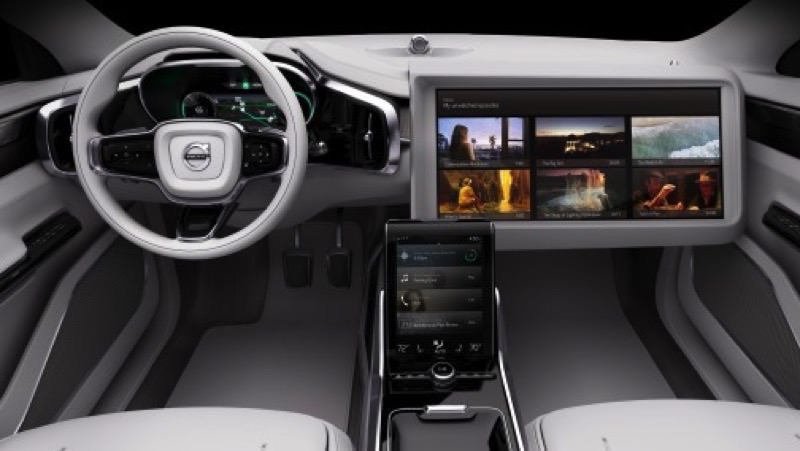Swedish automotive manufacturer Volvo plans to conduct the largest self-driving experiment in China this year, which will add 100 autonomous cars onto roads in China.
Volvo has already shown off its self-driving prototype at the Consumer Electronics Show (CES) 2016. It previewed Netflix in the car, and announced a partnership with Ericsson to make sure drivers had Internet connectivity during their entire trip.
See Also: 27% of Americans Want to Restrict Human Driving
“Autonomous driving can make a significant contribution to road safety. The sooner autonomous cars are on the roads, the sooner lives will start being saved,” said company president and chief executive Håkan Samuelsson at a Beijing conference.
We assume the venture into self-driving is part of Volvo Cars, a subsidiary of Volvo owned entirely by Chinese car manufacturer Geely. That would explain why Volvo decided to test its autonomous vehicles in China, rather than the United States where General Motors, Ford, Google, Tesla, and Uber all test self-driving features.
Not Volvo’s first foray into Chinese vehicle market
It is not the first time Volvo has invested time into transport infrastructure for China. In 2012, the company worked with the Chinese government to implement and manage a traffic safety research center, reports Times Live, to help the government deal with millions of workers coming from rural areas to work in factories.
Volvo has a similar test in the works in Gothenburg, Sweden, its hometown. The S90 Sedan will be the first car in Sweden to launch with some self-driving features available, like automatic lane switching.
“Autonomous driving is not just about car technology. We need the right rules and the right laws,” said Samuelsson. “That is why governments need to put in place the legislation to allow autonomous driving cars onto the streets as soon as possible. The car industry cannot do it all by itself. We need government help.”
The race is heating up for the first self-driving car on the market. With dozens of car manufacturers now invested directly or indirectly in the race, we’re likely to see a faster uptake in self-driving cars once regulators approve of their commercial use.
However, we still don’t know the capabilities of some autonomous systems like Volvo, Audi, BMW, General Motors, and Ford, who’ve only started speaking about self-driving technologies in the past two years. Google, on the other hand, has been testing its system for four years, and should be much further ahead when it comes to object identification and automation.


















